June 5, 2025 | 07:32 GMT +7
June 5, 2025 | 07:32 GMT +7
Hotline: 0913.378.918
June 5, 2025 | 07:32 GMT +7
Hotline: 0913.378.918
Despite encountering difficulties in the domestic market due to Typhoon Yagi in the third quarter, Vinamilk managed to sustain a total revenue increase of 3.3% during the first nine months of 2024. This performance allowed the company to achieve nearly 75% of its annual revenue target.
In Q3 2024, export revenue extended its positive growth streak for the fifth consecutive quarter, further reinforcing Vinamilk's expansion. Specifically, export revenue increased by 10.3%, while revenues from foreign subsidiaries (such as those in the U.S. and Cambodia) rose by 8.5%. Cumulatively, for the first nine months of 2024, net revenue from international markets contributed 355 million USD to Vinamilk, reflecting an impressive 15.7% increase compared to the same period last year.
In order to broaden its export activities, Vinamilk is maintaining a strong focus on emerging markets. The company is leveraging various free trade agreements and actively building strategic partnerships to enhance its reach. Representatives from Vinamilk have reported receiving positive signals from high-end markets, particularly those with substantial Vietnamese communities, which present a significant demand for its products, such as sweetened condensed milk and yogurt. Additionally, Vinamilk is diversifying its approach to market engagement by becoming more deeply involved in international retail, distribution, and supply chains.
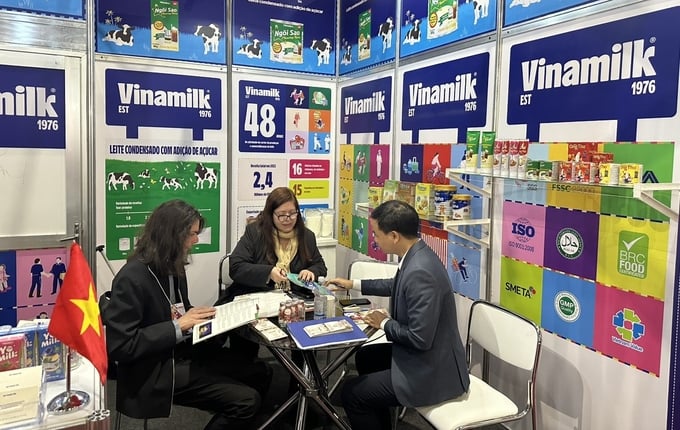
Focusing on emerging markets and participating in global supply chains has enabled Vinamilk to expand its export market to regions such as Australia and South America. Photo: Duc Trung.
In addition to its dairy products, Vinamilk is developing non-dairy products for export, such as Vinamilk Cocofresh coconut water, which is currently being shipped to markets including the U.S., Canada, Japan, and Taiwan. In Taiwan, alongside its traditional offerings like sweetened condensed milk, fresh milk, and yogurt, Vinamilk has introduced a new product: 100% pure CocoFresh in bottles. This product is expected to perform well, with subsequent orders anticipated for export by the end of this year.
While non-dairy products may not yet contribute significantly to overall revenue, this strategy represents a vital direction for market expansion. It demonstrates Vinamilk's production capabilities and showcases the quality of its products, paving the way for future growth and diversification in the international market.
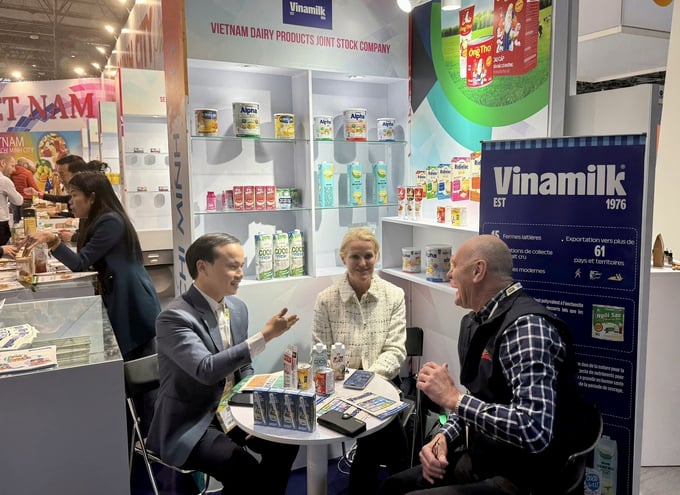
In addition to its dairy products, Vinamilk has also introduced a new coconut water product to customers in France. Photo: Duc Trung.
Vinamilk is strategically leveraging the concept of "green" in alignment with sustainable development trends as a key competitive advantage in its export initiatives, effectively creating a "fresh breeze" in the marketplace. In Australia and New Zealand, the company has successfully integrated into the supply chains of some of the largest international supermarket systems in the Oceania region, including Costco, Woolworths, and Foodstuff. This achievement has been facilitated by Vinamilk’s compliance with stringent requirements for environmentally friendly packaging. As a result, the company has seen remarkable revenue growth of over 50% in these markets compared to the same period last year. Furthermore, Vinamilk is intensifying its export efforts toward South America and Africa.
According to the latest reports, despite encountering difficulties in the domestic market due to the impacts of Typhoon Yagi, Vinamilk's total cumulative revenue for the first nine months of the year reached approximately 1.96 billion USD, marking a 3.3% increase compared to the previous year. In addition to maintaining its business operations, Vinamilk is recognized as one of the companies actively supporting those affected by natural disasters. Through various projects, Vinamilk, along with its employees and customers, has contributed nearly 1.8 million essential nutritional products valued at nearly 425.000 USD.
In the third quarter, Vinamilk continued to roll out a series of improvements, not only updating the packaging of its products in line with the new brand identity but also introducing exciting new offerings. Among the standout products are the 100% fresh milk with coconut flavor, premium low-sugar yogurt featuring unique flavors such as blueberry, red pomegranate, and aloe vera, as well as a revamped probiotic drinking yogurt with fresh packaging.
Remarkably, these new and improved products have achieved favorable business results, indicating strong market acceptance. This success highlights that Vinamilk's strategic changes are effectively resonating with consumers and positively influencing market dynamics.
The Vinamilk Probi probiotic drinking yogurt is making a strong impression with its vibrant new look and diverse flavor offerings. According to brand health assessment research, the "Diversity of Flavors" rating for Probi has significantly increased from 80% in 2022 to an impressive 94% in 2024. Additionally, the revenue for this product in the first nine months of the year has surged by nearly 30% compared to the same period last year.
The innovations introduced by Vinamilk are also aligned with the growing consumer trend towards "lower sugar" options. For example, in the yogurt category, Vinamilk now offers 17 different flavors, with nearly half of these products falling under the low-sugar line.
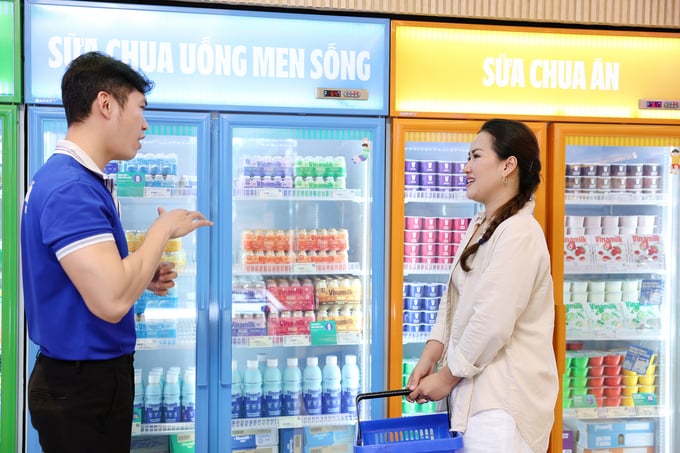
The Vinamilk Probi product line currently offers 9 flavors in 4 different bottle sizes, catering to various nutritional needs and consumer preferences. Photo: Duc Trung.
In addition to focusing on its core product groups, Vinamilk is making significant changes to the packaging of its secondary product lines, which include nut milk, ice cream, and beverages. Notably, the Vinamilk nut milk has quickly ascended to the top position in the market (excluding soy milk), achieving impressive revenue growth that has doubled in the first nine months of the year compared to the same period last year.
These ongoing innovations and improvements, along with several new products slated for introduction in the fourth quarter, are viewed by Vinamilk's leadership as essential drivers for sustained growth in the near future. In a recent newsletter sent to investors, Mrs. Mai Kieu Lien, the CEO of Vinamilk, shared that the company is actively implementing various strategies to stimulate domestic market demand as the year draws to a close. Concurrently, Vinamilk aims to uphold its high growth rates in international markets, ensuring that it meets the business objectives it has established for 2024.
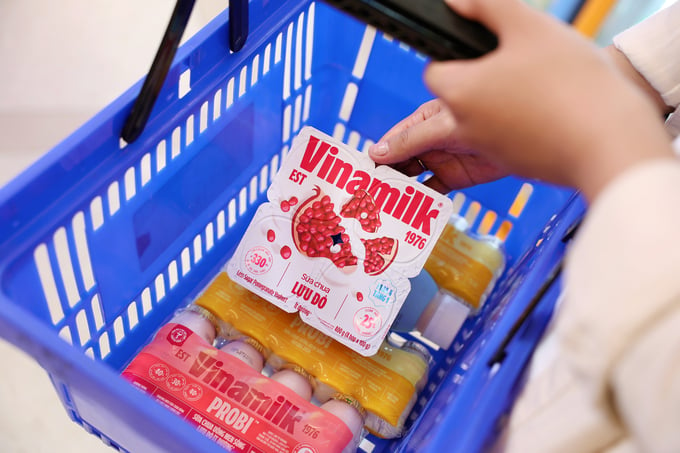
Diverse flavors and reduced sugar content are among the appealing features of Vinamilk products for consumers. Photo: Duc Trung.
Vinamilk is steadfast in its overall revenue target of approximately 2.67 billion USD for the entire year. The company has identified key growth drivers that include the recovery of consumer sentiment in the domestic market, sustained growth in its export markets, and ongoing efforts to optimize production operating costs.
In addition to this, a significant development is the listing of the "VNM19" depositary receipts on the Stock Exchange of Thailand. This derivative product is based on the underlying stock, VNM, and is issued by Yuanta Securities (Thailand).
Specifically, VNM19 functions as an investment instrument that enables investors in Thailand to trade VNM securities using local currency and their existing brokerage accounts. This innovation offers numerous benefits, including broader and more diverse access to investors, improved liquidity, and enhanced corporate governance in accordance with international standards.
Translated by Phuong Linh
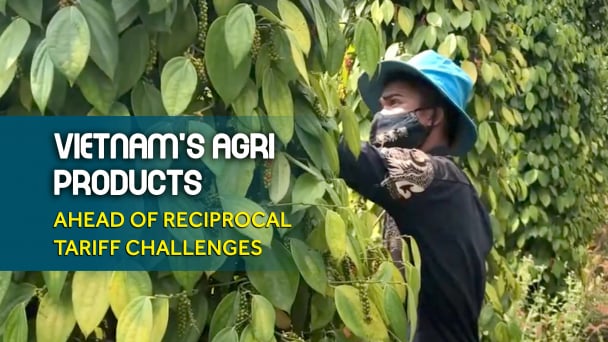
(VAN) Vietnam's pepper industry is looking forward to the final tariff decision in order to sustain its robust presence in the United States, the country's biggest pepper market.

(VAN) The U.S. is the largest market for Vietnamese cashew nuts. However, when exports to the U.S. encounter difficulties due to reciprocal tariffs, Vietnamese cashews still have many other potential markets.

(VAN) Reciprocal tariffs present a significant obstacle to Vietnam's wood exports to the United States; however, domestic wood businesses are endeavoring to preserve their market share in this critical market.

(VAN) Businesses in Vietnam are attempting to export rice to the United States ahead of the implementation of reciprocal tariffs, while remaining their optimism regarding this critical market.
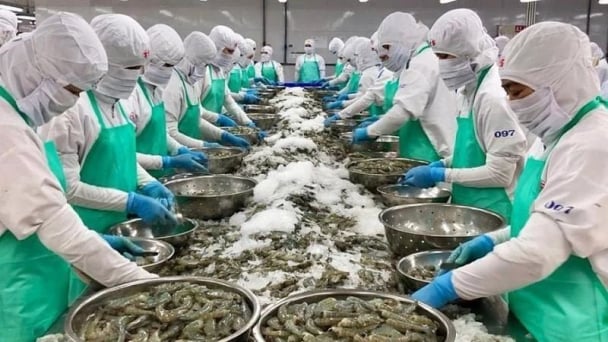
(VAN) From containers of cashew nuts, shrimp to in-depth technical dialogues, agricultural cooperation between Vietnam and the United States is entering a period of sustainable and two-way development.

(VAN) After the talks on May 28, Vietnam successfully exported its first batch of frozen durians to China, marking a new milestone in agricultural trade cooperation between the two countries.
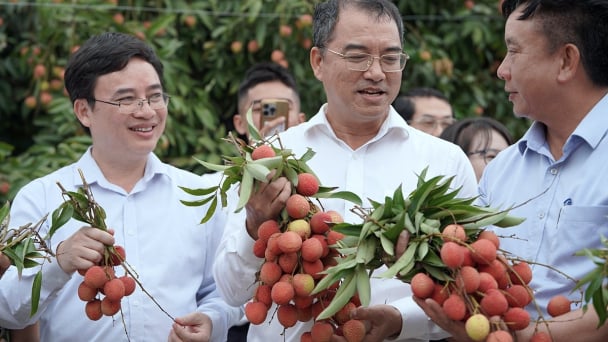
(VAN) Several major companies, such as Red Dragon and Ameii Vietnam, have signed purchasing agreements for the 2025 season, targeting markets including Japan, the United States, and the EU.